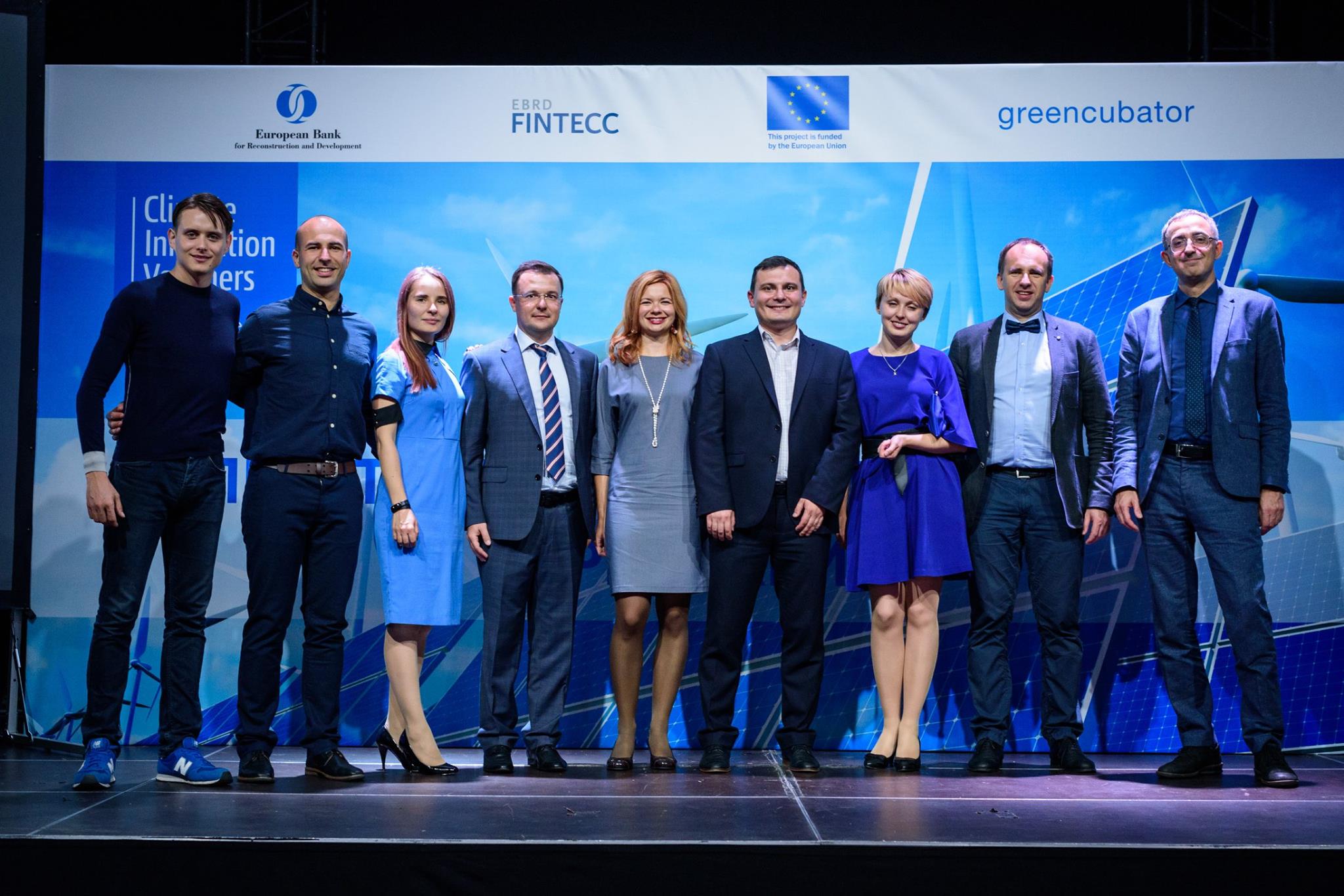Six Ukrainian companies have been chosen as recipients of Climate Innovation Vouchers (CIVs), a new scheme aimed at the development and improvement of technologies reducing greenhouse gas (GHG) emissions and improving energy consumption in Ukraine.
Businesses and consultancies from Kiev, Dnipro and Lviv will receive vouchers worth €160,000 in total for innovations ranging from the introduction of new construction materials to the application of modern billing systems. The vouchers will provide grant funding for researchers and businesses proposing energy-efficient technologies and schemes to reduce greenhouse gas emissions.
The first six winners of the Climate Innovation Vouchers are:
- Ecoisme (Kiev) - energy monitor for effective electricity consumption
- Elektrokars (Kiev) - billing systems for electro-car charging stations
- Engineering Innovations (Lviv) - prefabricated reinforced-concrete construction technology
- Institute of Ecology and Energy Saving (Kiev) - software for the operation of biomass-fired boilers
- UkrTsentr-Grup (Kiev) – hemp-based insulation material
- VTS Komplect (Dnipro) - household cardboard recuperator

The CIV project was initiated by the EBRD’s Finance and Technology Transfer Centre for Climate Change (FINTECC) programme, which is financed by the EU Neighbourhood Investment Facility (NIF). Ukraine has become the first of the EBRD’s countries of operations to benefit from the CIVs, where the project is implemented by a local NGO, Greencubator, that promotes climate innovations and a green economy in Ukraine.
It is expected that the CIV programme, with a total budget of €1 million, will support around 50 innovative projects in Ukraine until the end of 2018. Vouchers for individual projects may range from €20,000 to €50,000 depending on their innovativeness, complexity and potential benefit. Further recipients will be identified via three more rounds of the competitive selection process.
Johannes Baur, First Counsellor and Head of the Operations Section at the EU Delegation to Ukraine, stressed that the Climate Innovation Vouchers are an important practical support mechanism provided by the EU and the EBRD to Ukrainian firms to pilot new technologies and promote sustainable development.
Sergiy Maslichenko, EBRD Associate Director for Energy Efficiency and Climate Change, said: “We are pleased by the number of applications submitted for the first selection round. Over 40 companies from different regions of Ukraine competed for the innovation vouchers. Clearly, Ukraine’s innovation market is growing and there is an appetite to develop and implement more climate-friendly solutions. The Climate Innovation Vouchers programme is well-placed to support such undertakings.”
Roman Zinchenko, Chairman of the Board of Greencubator, added: “We are witnessing new, positive dynamics in the Ukrainian market regarding energy and climate innovations. For further development in this field it is important to go beyond the domestic market.”
The EBRD’s FINTECC programme is designed to transfer technology in the area of climate change mitigation and adaptation and was launched in Ukraine in February 2016. The three-year FINTECC programme is supported by US$ 7 million of grant funding from the Global Environment Facility (GEF) and a €4 million grant from the EU’s NIF.
The EBRD is the largest international financial investor in Ukraine. To date, the Bank has made a cumulative commitment of almost €11.6 billion through 383 projects since the start of its operations in the country in 1993.
Greenсubator develops the ecosystem required for sustainable entrepreneurship, climate innovations and a green economy in Ukraine. The main goal of Greenсubator is to increase the number of players and developers of climate-positive innovations in the green economy, helping them to attract investment and enter global markets and thus contribute to the development of a low-carbon economy in Ukraine.
The EU Neighbourhood Investment Facility (NIF) is a mechanism aimed at mobilising additional funding to finance capital-intensive infrastructure projects in EU partner countries which are covered by the European Neighbourhood Policy (ENP) in sectors such as transport, energy, environment and social development. The NIF also supports the private sector, mainly through investment grants and risk-capital operations targeting small and medium-sized enterprises.




